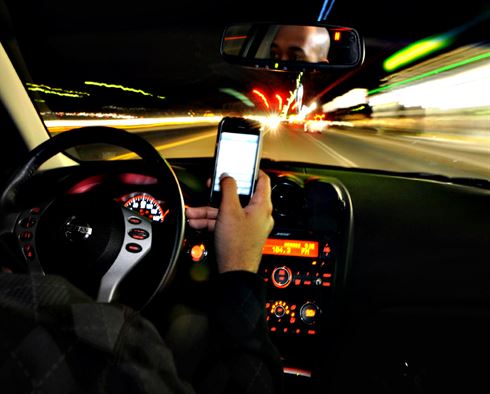A routine commute through Salt Lake City’s residential streets and freeways, never ceases to supply a healthy dose of construction zones, salt corroded potholes and scenes of traffic accidents — both big and small. Slow drivers in the fast lane, illegal u-turners and the seemingly defective blinkers of indecisive motorists accompany you on your journey through town. All of these obstacles are understood to be necessary evils, and not particularly unique to Salt Lake City or Utah, that everyone must subject themselves to in order to reach their desired destinations. But, while drivers of Salt Lake City roads do experience the same irritating hurdles that hinder drivers elsewhere, many contend that we must have it worse.
I’ve heard the popular, often disgruntled position that claims Utah drivers are objectively more reckless, inadequate and generally less qualified to hold a license compared to other states. I’m guilty of having this hasty sentiment as well, but I’m sure that people in every state probably share a similar bias. Thankfully, there exists detailed data on national driving habits that can finally provide an accurate conclusion to these timeworn presumptions. Unfortunately, the findings suggest that Salt Lake motorists might have bigger issues than just blinkers.
According to a 2016 study by QuoteWizard, a website used for comparing insurance plans by state, Utah drivers rank “the worst in the nation,” with Salt Lake City specifically ranking number two after Sacramento California, for worst city. The study compared roadway citations given for traffic tickets, drunk driving and auto accidents. So what specifically makes Utah “the place” for negligent driving? While the study claims that while Utah is not number one in any of the tested areas, drivers in our state are charged with more driving violations per insured driver than any other state. Now, it is possible that we might not fully deserve this embarrassing grade. The case could be made that the local law enforcement here has stricter standards or different methods in attaining citations compared the rest of the country. The ever popular “speed trap” seems to be significantly adding to these citation numbers all while funding the police departments that utilize them. This tactic that has been labeled as entrapment by some Utahans, has been especially lucrative for police in Mantua, Utah where city officials claim that fines collected from their notorious speed trap supplies 40 percent of their general funding.
One curious piece of data from the study concluded that the state of Utah made the top 10 list of DUIs in the country — placing it at number nine overall. For a state that identifies as nearly 60 percent LDS, a religion that abstains from drinking alcohol, this ranking is certainly one to be ashamed of.
While we might be getting ticketed more on average than the rest of the United States, Utah ranked low on the list of car-related fatalities by state. Utah’s rural populations are probably to credit for this positive statistic, but the rapidly growing population and abnormally high birthrate is promptly increasing those numbers. Between 2013 and 2016, the motor vehicle related traffic deaths increased an alarming 27 percent.
It’s hard to attribute any one characteristic of Utah drivers to the growing rate of traffic fatalities, but weather might be one of the many factors. The first snow fall of the season seems to have a strange effect on the people here. Snow and ice on the roads is an expected hassle, but has an almost eerie effect on the memories of seasoned drivers. Every year without fail, the snow will accumulate on the roads and it will take several weeks for us to re-learn how to handle a vehicle on it. The complex principles of following further and breaking sooner must apparently be acquired through trial and error on an annual bases.
For a state with such a scattered population and small capitol city, these findings should be additionally concerning. Our state, and especially Salt Lake City is growing at an exceptional rate.
If we can’t fix our driving habits now, how will adding more people to the equation improve our problem? Most citations and even traffic accidents are avoidable by at least one contributing party. Sleepy driving, intoxicated driving and all-around reckless abandonment for your fellow motorists are certainly selfish and preventable, and the alternative could very well be injury or death. We all sign our live’s away when we get into the drivers seat-expecting that those around us are doing their part to keep the road safe. I suggest we focus more on personal responsibility and remind ourselves that driving is a privilege. Ultimately, your life and the life of those around you depends on it.
letters@chronicle.utah.edu


